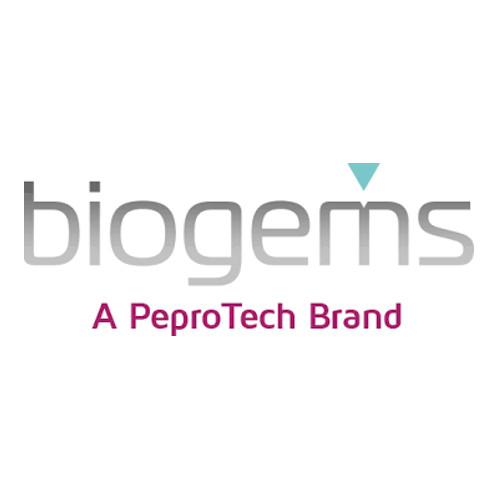CD4 / PerCP-Cy5.5 / GK1.5
Product Details
| Description | The GK1.5 monoclonal antibody specifically binds with the mouse CD4 molecule, also known as L3T4, a 55 kDa differentiation antigen which binds to the MHC class II. CD4 is expressed on most thymocytes, a subpopulation of mature T lymphocytes, dendritic cells, pluripotent hematopoietic stem cells, B cell precursors, and lymphoid precursors inside the thymus. It is also expressed on the mouse egg cell membrane, enhancing adhesion to MHC class II bearing sperm. By interaction with MHC class II on the surface of APC, CD4 initiates the development of T lymphocytes and helps the optimum functioning of mature T lymphocytes. The binding of the GK1.5 antibody blocks the binding of the Anti-Mouse CD4 RM4-5 antibody. | |
|---|---|---|
| Conjugate | PerCP-Cy5.5 | |
| Clone | GK1.5 | |
| Target Species | Mouse | |
| Applications | FC | |
| Supplier | BioGems | |
| Catalog # | Sign in to view product details, citations, and spectra | |
| Size | ||
| Price | ||
| Antigen | ||
| Host | ||
| Isotype |
About CD4
This gene encodes the CD4 membrane glycoprotein of T lymphocytes. The CD4 antigen acts as a coreceptor with the T-cell receptor on the T lymphocyte to recognize antigens displayed by an antigen presenting cell in the context of class II MHC molecules. The CD4 antigen is also a primary receptor for entry of the human immunodeficiency virus through interactions with the HIV Env gp120 subunit. This gene is expressed not only in T lymphocytes, but also in B cells, macrophages, granulocytes, as well as in various regions of the brain. The protein functions to initiate or augment the early phase of T-cell activation, and may function as an important mediator of indirect neuronal damage in infectious and immune-mediated diseases of the central nervous system. Multiple alternatively spliced transcript variants encoding different isoforms have been identified in this gene. [provided by RefSeq, May 2020]
This gene encodes the CD4 membrane glycoprotein of T lymphocytes. The CD4 antigen acts as a coreceptor with the T-cell receptor on the T lymphocyte to recognize antigens displayed by an antigen presenting cell in the context of class II MHC molecules. The CD4 antigen is also a primary receptor for entry of the human immunodeficiency virus through interactions with the HIV Env gp120 subunit. This gene is expressed not only in T lymphocytes, but also in B cells, macrophages, granulocytes, as well as in various regions of the brain. The protein functions to initiate or augment the early phase of T-cell activation, and may function as an important mediator of indirect neuronal damage in infectious and immune-mediated diseases of the central nervous system. Multiple alternatively spliced transcript variants encoding different isoforms have been identified in this gene. [provided by RefSeq, May 2020]
About PerCP-Cy5.5
PerCP-Cyanine® 5.5 (PerCP-Cy5.5) is a red-emitting tandem fluorophore that was originally designed to make the PerCP fluorophore more stable and increase signal intensity. The donor molecule, PerCP can be excited by the 488-nm blue laser and and transfers energy to the acceptor molecule, Cy5.5, which emitts light that can be captured with a 695/40 nm bandpass filter. PerCP-Cy5.5 has an excitation peak at 482 nm and an emission peak at 695 nm. There are superior alternatives to PerCP and PerCP-Cy5.5 including BB700, NovaFluor Blue 690 or PerCP-eFluor™ 710
PerCP-Cyanine® 5.5 (PerCP-Cy5.5) is a red-emitting tandem fluorophore that was originally designed to make the PerCP fluorophore more stable and increase signal intensity. The donor molecule, PerCP can be excited by the 488-nm blue laser and and transfers energy to the acceptor molecule, Cy5.5, which emitts light that can be captured with a 695/40 nm bandpass filter. PerCP-Cy5.5 has an excitation peak at 482 nm and an emission peak at 695 nm. There are superior alternatives to PerCP and PerCP-Cy5.5 including BB700, NovaFluor Blue 690 or PerCP-eFluor™ 710
Experiment Design Tools
Panel Builders
Looking to design a Microscopy or Flow Cytometry experiment?
Validation References
Reviews & Ratings
| Reviews |
|---|
Looking for more options?
6549 CD4 antibodies from over 61 suppliers available with over 260 conjugates.





